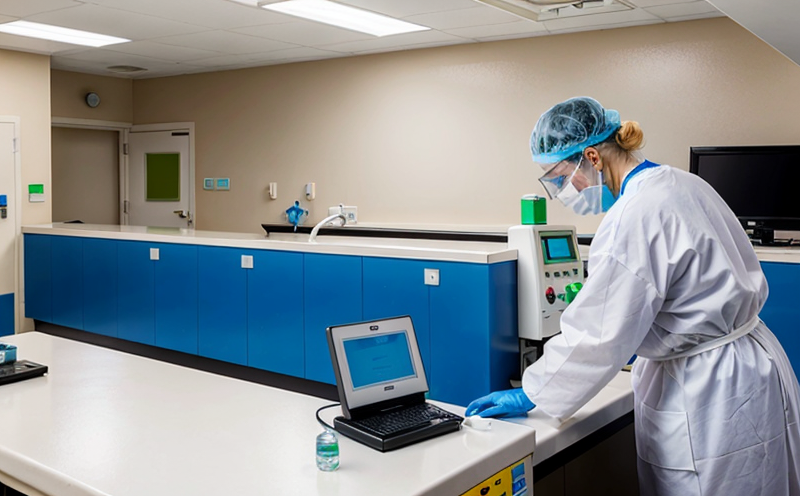Coronavirus Surface Residue Testing in Public Hospital Areas
The ongoing global health crisis has highlighted the importance of accurate and reliable testing to monitor the presence of SARS-CoV-2, the virus responsible for COVID-19. In public hospital areas, maintaining a hygienic environment is paramount not only to protect patients but also healthcare workers and visitors alike. This service focuses on providing comprehensive testing solutions that ensure surface residue levels are within acceptable limits as per international standards.
Our Coronavirus Surface Residue Testing Service employs advanced molecular biology techniques combined with validated protocols to detect viral RNA or proteins on various surfaces found in public hospital areas such as door handles, bed rails, and waiting room furniture. By conducting these tests regularly, hospitals can implement targeted cleaning measures more effectively, thereby reducing the risk of transmission.
The testing process involves collecting swabs from selected high-touch points followed by extraction and amplification steps using reverse transcription polymerase chain reaction (RT-PCR) technology. Results are typically reported within 24 hours depending on sample volume and complexity. Our laboratory adheres strictly to ISO/IEC 17025 standards ensuring accuracy, precision, and traceability throughout the entire process.
Accurate detection of viral residues plays a crucial role in maintaining public health safety. Regular testing helps identify contaminated surfaces early on so they can be addressed promptly before becoming potential sources of infection. Additionally, this service supports healthcare facilities in complying with regulatory requirements set forth by organizations like WHO and CDC regarding environmental hygiene standards.
Our team consists of experienced professionals specializing in infectious disease diagnostics who bring extensive knowledge about best practices for sampling methods, storage conditions, and interpretation of results. We work closely with clients to understand their unique needs and develop tailored solutions that meet their specific requirements.
Benefits
Implementing our Coronavirus Surface Residue Testing Service offers numerous advantages for public hospitals aiming to enhance patient safety and reduce the risk of nosocomial infections. Here are some key benefits:
- Early Detection: Enables prompt identification of contaminated surfaces, allowing for immediate disinfection.
- Informed Decisions: Provides data-driven insights to guide cleaning protocols and resource allocation decisions.
- Compliance Assurance: Helps facilities stay compliant with international guidelines and local regulations on environmental hygiene.
- Enhanced Reputation: Demonstrates commitment to patient care and public health, fostering trust within the community.
Industry Applications
| Application Area | Description |
|---|---|
| Hospital Hygiene Monitoring | Regularly testing surfaces in public areas like waiting rooms, corridors, and elevators allows for continuous surveillance of potential contamination levels. |
| Emergency Preparedness | Testing ahead of large gatherings or influxes of patients helps ensure readiness against outbreaks. |
| New Facility Commissioning | Verifying cleanliness before opening ensures compliance with stringent hygiene standards from the outset. |
| Outbreak Response | Determining the extent of contamination during an outbreak aids in containment strategies and patient management. |
Use Cases and Application Examples
In practice, our testing service has been implemented across various scenarios within public hospitals:
- Preventive Measures: Conducting routine tests on frequently touched surfaces in common areas to prevent spread.
- Epidemiological Studies: Collaborating with researchers to gather data on the effectiveness of current cleaning practices.
- Patient Flow Optimization: Identifying bottlenecks where contamination is highest and optimizing traffic patterns accordingly.





